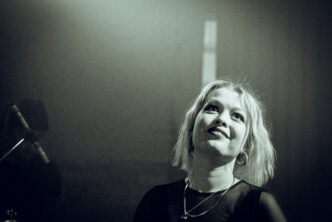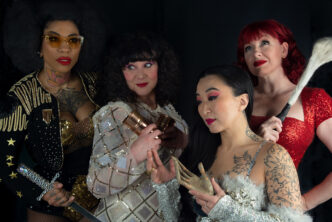I don’t mean to say I’ve lost count, or that I was found, as a babe, at Victoria Station. What I mean to say is that I have not yet found how to be the age I am. I often don’t feel right, ‘in myself,’ as the saying goes.
There are, of course, expectations and established conventions. Perhaps it is easier to conform to these if you have children and grandchildren to mark the route. I don’t and, even so, must all grandparents behave in such and such preset ways? Surely not.
I think too much. This has often been said, even back when thinking was what I was paid to do for a living. Sometimes, this is a comfort. Sometimes, it is a straitjacket with a chain wrapped around and a cast iron ball attached. Those days, I try to rise from my oh-so-comfortable chair and heave myself out into the world.
The other day was one such. I felt both weighted down and unanchored: a disconcerting combination. But the autumn sun was shining, so I ventured out for a bus ride.
The bus I caught was unusually full for the time of day. There was one vacant seat, yet several people had chosen to stand. Perhaps that should have been a clue.
The elderly gentleman I settled next to was muttering and chuntering. The tension in his body suggested he expected to receive (or maybe dish out) blows, at any moment.
He wore a woolly hat over white hair and a mid-length white beard (no ageing hipster, or Santa-in-waiting). Neither dirty nor unkempt, he was… untidy. As a book, he would have been dog-eared: not quite cast aside, but well-used by life.
He seemed mid-conversation; earnest, intense, agitated. I wondered if he might be on the phone, with one earphone plugged into his left ear (the one nearest the window, away from my sight). He wasn’t. Most of what he was saying was utterly unintelligible, apart from the occasional emphatic repeated utterance of the word, “stupid!”
I decided to breathe deeply, relax, and stare forward.
After a few minutes, the bus pulled in at a timing point. It waited and so did we. Out of the corner of my eye, I became aware that I was being stared at, or might that be a glare? Reluctantly, I turned to confront it.
“Are you all right, pal?” asked my chuntering neighbour. It was more a challenge than a friendly inquiry. I wasn’t at first sure how to respond to this, and then it occurred to me that he might be wishing to disembark (one of those who think body language speaks louder and clearer than actual words).
“Is this your stop?” I asked him, in a friendly, helpful, slightly apologetic voice (at least, I hoped it was all those things).
With those few words (and perhaps the way they were spoken), I became something more human for him.
His face softened, as did his whole posture. He told me he was going all the way to Preston station. And then, he started to talk to me. This was more unsettling than it might have been, because he talked as though I were already right up to speed with whatever he’d been fretting and muttering about.
“Stupid! How can he do that?”
I hadn’t the slightest idea.
“Try not to worry too much about it,” I counselled.
“I’m not worried!” He was very insistent on this. He went on.
“He can’t drive. He hasn’t got a licence. Stupid. Why is he doing it? A car’s a deadly weapon!”
Here, I’m piecing together several snippets, spread over a few minutes.
“Stupid! Stupid.”
He looked at me and I felt it was time for another interjection.
“You can only offer them advice,” I said. “In the end, they have to make their own choices.”
“I’m not offering advice!” Again, the insistence. “And why is he making that choice? Stupid!”
I nodded, and pressed the bell.
“This is my stop.” I didn’t want him feeling abandoned without warning.
He thanked me, and said it had been ‘nice’ talking to me. As I got up, he reached out, shook my hand, and told me his name was Phil.
“Not many people listen,” he said, before releasing my hand.
Looking back as the bus pulled away, I could see Phil waving and smiling sweetly, almost happily.
For the rest of that day, I felt more right in myself.





